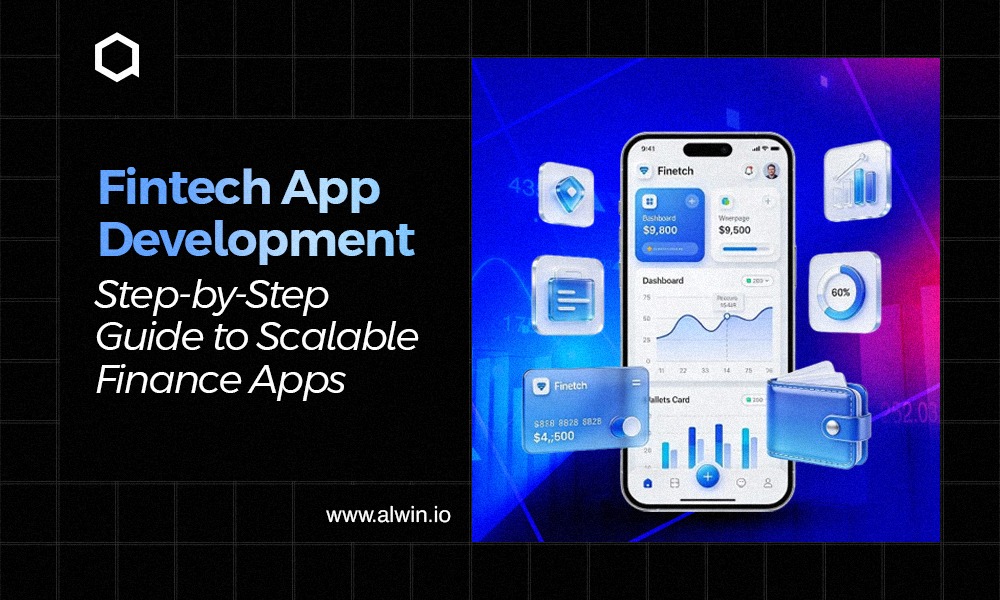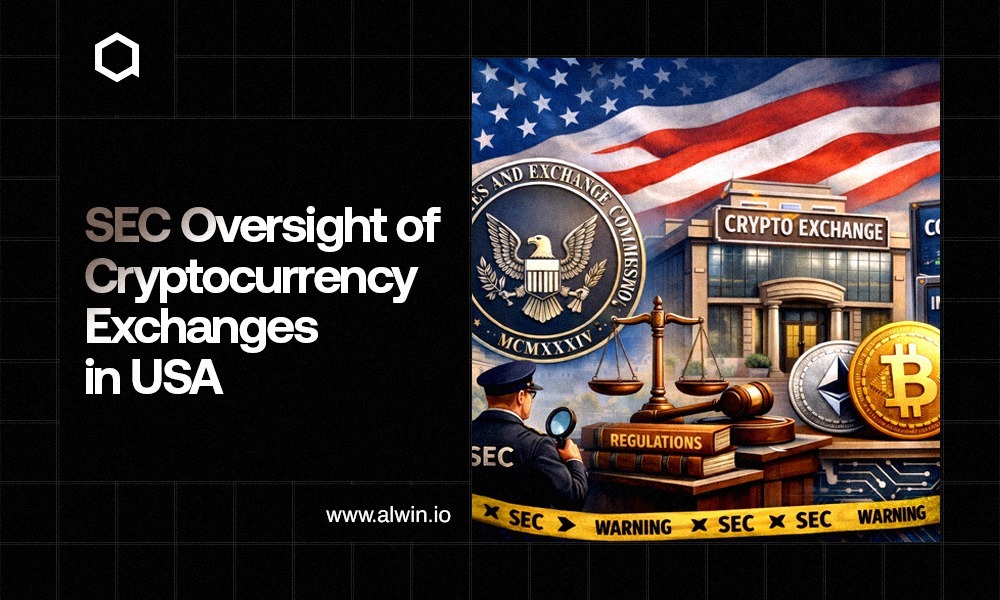What is a DeFi wallet?
A DeFi wallet app is a mobile application that allows us to manage and interact with decentralized finance development protocols directly from our smartphones or tablets.
It provides a convenient and user-friendly interface for users to access various DeFi services, including storing digital assets, participating in lending and borrowing, trading tokens, and engaging in yield farming and staking activities.
With a DeFi wallet app, we can securely store our cryptocurrencies and tokens, view their balances, and track transaction history. It can connect our wallets to different DeFi platforms and seamlessly interact with decentralized applications, such as decentralized exchanges (DEXs), lending platforms, and liquidity pools.
The app often integrates with popular DeFi protocols and provides a streamlined experience for us to navigate and engage in different DeFi activities.
Key Features of a DeFi Wallet:
1. Asset Management:
DeFi wallets enable you to securely store, send, and receive various cryptocurrencies and tokens supported by decentralized finance protocols. You can view the balances, and transaction history, and manage their assets within the wallet.
2. Integration with DeFi Protocols:
DeFi wallets are often integrated with multiple decentralized finance protocols, allowing you to seamlessly access and interact with different DeFi services from a single interface.
This includes accessing lending platforms, decentralized exchanges (DEXs), yield farming protocols, liquidity pools, and other DeFi applications.
3. Web3 Browser and DApp Support:
DeFi wallets usually incorporate a Web3 browser that enables you to browse decentralized applications (DApps) directly from the wallet interface.
This allows for convenient access to DeFi platforms without the need to switch between multiple applications or wallets.
4. Transaction Management:
DeFi wallets provide features for managing transactions, such as setting gas fees, confirming and tracking transaction status, and managing transaction history. They may also offer options for faster transaction confirmation by adjusting gas fees or utilizing layer 2 scaling solutions.
5. Security and Control:
Security is a crucial aspect of DeFi wallets. They employ various security measures, including private key management, encryption, and support for hardware wallets. DeFi wallets aim to give you full control over your funds, emphasizing self-custody and ownership of private keys.
6. Token Swapping and Trading:
Many DeFi wallets integrate with decentralized exchanges or provide built-in token-swapping functionality. This allows you to trade cryptocurrencies directly within the wallet, enabling quick and seamless asset exchanges.
7. Portfolio Analytics and Tracking:
Some DeFi wallets offer portfolio analytics and tracking features, providing you with insights into their DeFi investments, yields, and overall portfolio performance.
These features help you monitor and manage their DeFi activities effectively. It's important to note that while DeFi wallets provide a convenient and user-friendly interface for interacting with decentralized finance protocols, you must exercise caution and perform due diligence when choosing a wallet.
It's crucial to select reputable and secure wallets, review their security features, and follow best practices for wallet security, such as backing up private keys and enabling additional security measures like two-factor authentication.
Uses of DeFi Wallet
DeFi wallets serve as a versatile tool for you to engage in a wide range of activities within the decentralized finance ecosystem. Here are some common uses of DeFi wallets:
1. Storing and Managing Assets:
DeFi wallets provide a secure and convenient way to store and manage various cryptocurrencies and tokens. you can securely hold your digital assets within the wallet, view your balances, and monitor transaction history.
2. Accessing DeFi Applications:
DeFi wallets act as gateways to decentralized finance applications. They allow you to connect with and interact directly with different DeFi protocols, such as lending platforms, decentralized exchanges (DEXs), yield farming platforms, liquidity pools, and more.
you can seamlessly access these applications from the wallet interface, eliminating the need to switch between multiple platforms.
3. Lending and Borrowing:
DeFi wallets enable you to directly participate in lending and borrowing activities. lend your digital assets to earn interest or borrow assets by using your existing holdings as collateral.
With a DeFi wallet, you can manage your lending and borrowing positions, track interest earnings, and monitor loan repayments.
4. Trading and Swapping Tokens:
DeFi wallets often integrate with decentralized exchanges or provide built-in token-swapping functionality. you can trade or swap your cryptocurrencies directly within the wallet interface, allowing for quick and efficient asset exchanges.
These features provide you with liquidity options and enable seamless token swaps between different assets.
5. Yield Farming and Staking:
DeFi wallets facilitate participation in yield farming and staking activities. you can stake your tokens in liquidity pools, farming pools, or governance mechanisms to earn rewards and incentives.
Using DeFi wallets we can monitor and manage our staking positions, track earned yields, and participate in governance voting if applicable.
6. Portfolio Tracking and Analytics:
Some DeFi wallets offer portfolio tracking and analytics features. We can monitor the performance of our DeFi investments, track yields earned from various protocols, and analyze their overall portfolio composition.
These features provide us with insights to make informed investment decisions.
7. Interacting with Decentralized Identity:
Certain DeFi wallets support decentralized identity solutions. We can manage our digital identities and engage in activities that require identity verification or reputation systems within the decentralized finance ecosystem.
This can include accessing exclusive services, participating in governance, or verifying one's credentials for specific DeFi applications.
It's important to note that the specific features and capabilities of a DeFi wallet can vary depending on the wallet provider and the underlying protocols it supports. you should choose a wallet that aligns with your needs, considers security measures, and supports the desired DeFi functionalities.
Is DeFi wallet safe?
Yes, the decentralized finance (DeFi) wallet safety is good but depends on various factors also, including the specific wallet you choose, your own security practices, and the overall security of the blockchain network it operates on. Here are some key considerations:
1. Wallet Security Features:
Look for wallets that offer robust security features such as encryption, two-factor authentication (2FA), and recovery options. These measures help protect your private keys and funds from unauthorized access.
2. Reputation and Auditing:
Choose wallets that have a strong reputation in the crypto community and undergo regular security audits. Wallets that are well-regarded and have been audited by reputable third-party firms offer increased assurance of their security measures.
3. Open-Source Code:
Open-source wallets allow the community to review and audit their code for potential vulnerabilities. This transparency can enhance security as experts can identify and fix issues more quickly.
4. Non-Custodial Wallets:
Non-custodial wallets give you complete control over your private keys, meaning you have sole ownership and responsibility for your funds. This reduces the risk of your assets being compromised through a centralized point of failure.
5. Smart Contract Risks:
Many DeFi wallets interact with smart contracts, which can carry their own risks. It's essential to understand the smart contracts you're using and verify their security audits and reputation within the community.
6. Phishing and Scam Risks:
Be cautious of phishing attempts and scams. Always double-check the wallet's official website or app store listing to ensure you are using the genuine version. Avoid clicking on suspicious links or providing your private keys or recovery phrases to anyone.
7. Regular Updates:
Ensure that the wallet you choose receives regular updates and bug fixes. Promptly update your wallet to benefit from security enhancements and stay protected against any known vulnerabilities.
Remember, even with a secure wallet, the overall security of your funds also depends on your own practices.
Practice good security hygiene by using strong, unique passwords, enabling 2FA, keeping your software and devices up to date, and storing your recovery phrases securely offline.
Overall, a DeFi wallet app acts as a comprehensive solution for us to conveniently manage our decentralized finance activities on the go, providing access to a range of DeFi services and empowering individuals to have full control over our digital assets.



